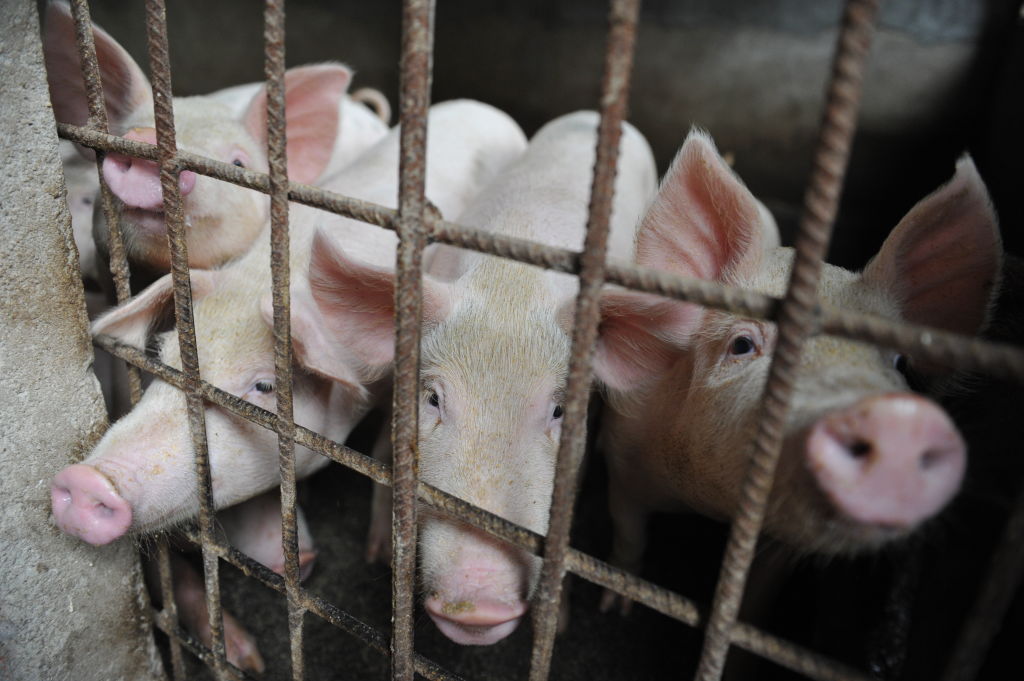National security wrap

The beat
Canadian intelligence officer accused of espionage
The director-general of the Royal Canadian Mounted Police’s intelligence unit has been charged with obtaining and storing classified information with the intent of sharing it with a ‘foreign entity’. Cameron Ortis has been accused of breaching three sections of Canada’s Security of Information Act and two provisions of the criminal code, and is the ‘first [Canadian] person permanently bound by secrecy ever to be charged with disclosing special operations information’.
UK police raise concerns over ‘biased’ AI
Police in the UK are concerned about using artificial intelligence for policing, according to a report from the Royal United Services Institute. Officers were worried that developing AI algorithms based on police data could replicate and potentially amplify human biases and prejudices.
Cop chain carries cocaine
Testimony in a NSW drug-smuggling trial has painted a vivid picture of the size of a cocaine seizure in 2017. Detective Dylan Manga described how Australian state and federal police and Border Force officers formed a human chain to unload 700 blocks of cocaine from a boat moored on Lake Macquarie. The cocaine, worth $245 million, was concealed in the hull of a boat that had links to an international drug syndicate. Manga said ‘there were a large number of people handing blocks to the next person’.
Checkpoint
El Salvador sending police to borders
El Salvador is sending 800 police to its borders in a bid to stop US-bound migrants. The deployment began at La Hachadura, a town on the border with Guatemala, and is part of an agreement between the Salvadoran government and the US to slow the flow of migrants heading north through countries like Guatemala and Honduras to try to reach the US.
Trump’s asylum-seeker block to go ahead
The US Supreme Court has given the Trump administration the green light to implement a strict asylum-seeker policy at its border with Mexico. Under the policy, any migrant who reaches the US border will be turned away if they have not sought protection in a country they passed through while en route to the US. That means any migrant from a third country who travelled through Mexico and didn’t seek asylum there will be rejected at the US border. The Mexican government has criticised the decision.
Pakistani troops killed on Afghan border
Pakistan has confirmed that four of its soldiers were killed in two separate attacks in the country’s northwest after militants from across the Afghan border opened fire. Three men were killed in the Dir district, where Pakistani troops were building a border fence, while another soldier was killed when a border patrol was ambushed on Friday in North Waziristan. Pakistan’s foreign ministry has condemned the attacks.
CT scan
Call for Australia’s citizenship-stripping law to be repealed
Legislation that automatically strips dual nationals suspected of terrorism of their Australian citizenship must be ‘urgently’ repealed, says the Independent National Security Legislation Monitor. Stripping citizenship could ‘cause confusion and potential legal difficulties’ for law enforcement and security agencies and limit their ability to monitor returning foreign fighters or press criminal charges. Earlier this week, ASIO warned that forcing terrorists offshore wouldn’t remove the direct threat they pose to Australia.
Al-Baghdadi releases audio recording
The leader of Islamic State and the world’s most wanted man, Abu Bakr al-Baghdadi, has released a new audio recording ordering his followers to remain a potent and global threat and to do all they can to free IS detainees and women held in jails and camps. It’s unclear when the message was produced; however, it refers to the second IS ‘attrition campaign’, which ended on 30 August, suggesting it’s relatively new.
Facebook gets tougher on terrorist and extremist content
Facebook has unveiled a series of updates to the way it combats terrorists, violent extremist groups and hate organisations on its platform. The terrorist attack in Christchurch, New Zealand, was a catalyst for many of the changes, including broadening its definition of terror organisations. Facebook is also working with the US and UK governments and law enforcement agencies to expand the ability of its AI to recognise video taken by a perpetrator of violence.
First responder
Australian government criticised over disaster fund
The shadow education minister, Tanya Plibersek, has criticised the government’s plan to source $4 billion in natural-disaster relief from the education infrastructure fund after the bill passed the lower house on Tuesday. A Senate committee is examining the bill and is due to report on 10 October. Opposition leader Anthony Albanese indicated that he supports the government in boosting emergency response funding, but accused it of politicising natural disasters.
Rohingya camps get emergency aid
The World Food Programme has launched its biggest emergency response of the year to help displaced Rohingya families after heavy monsoon rains inundated refugee camps in southern Bangladesh. Within 24 hours, the WFP delivered food to almost 17,000 people. Despite a €2 million (A$3.3 million) contribution from the EU, the WFP says it costs the organisation US$16 million (A$23.6 million) every month to feed the almost 900,000 Rohingya in the camps, and the situation could deteriorate rapidly if adequate funding isn’t made available.
African swine fever hits South Korea
South Korea is the latest country in Asia to be affected by African swine fever. Officials confirmed on Wednesday that the fever had spread to a second pig farm in Yeoncheon, a town close to the North Korean border, and that the farm’s 4,700 pigs would be culled in an effort to contain the outbreak. South Korean officials had been monitoring farms close to border after the disease spread to North Korea in May.